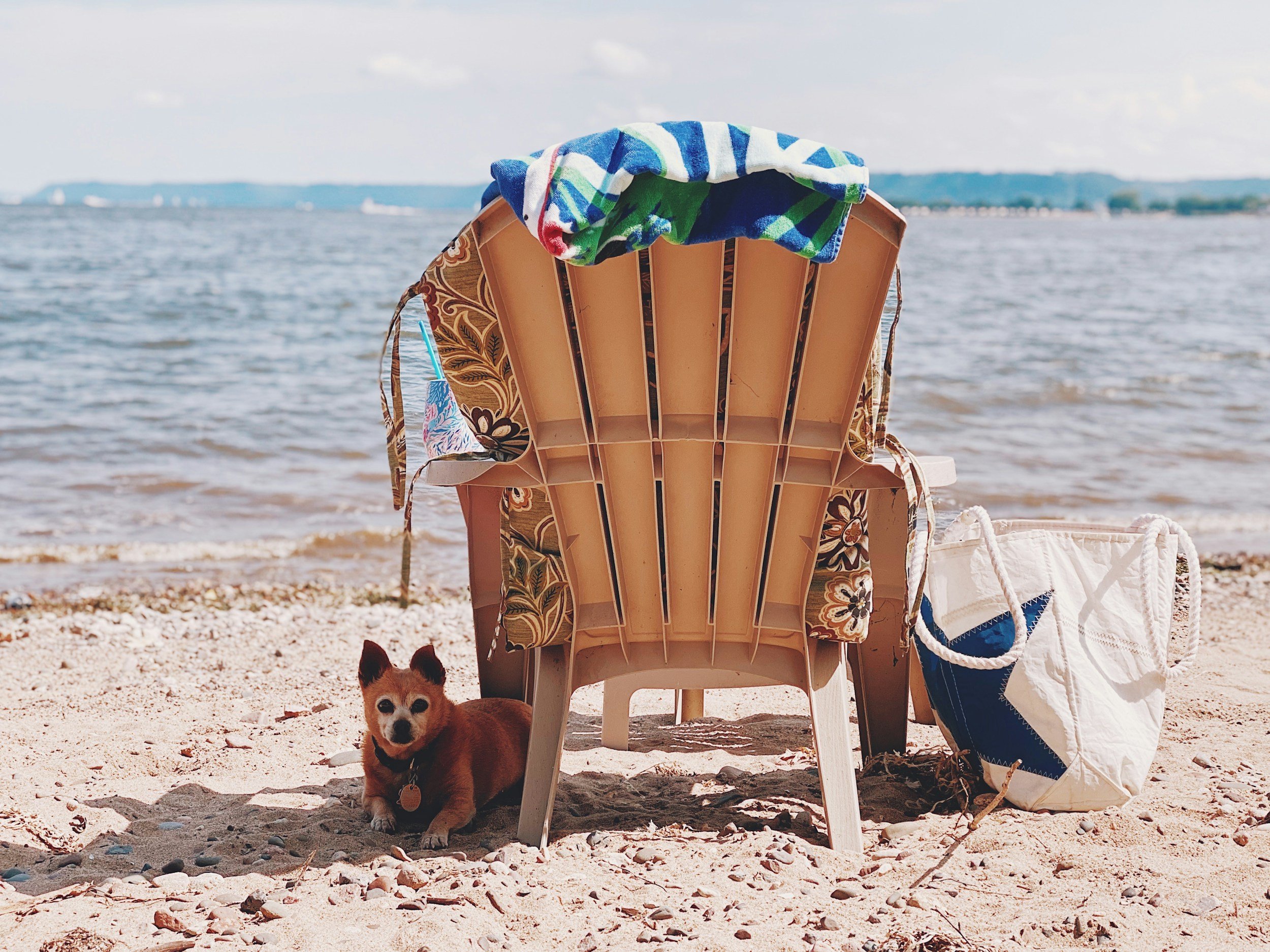The Ultimate Guide:
Traveling with your Pet to Mexico
Moving to Mexico or even going for an extended stay doesn’t mean you have to leave your pet behind! Pet travel is stressful on both you and your pet, but there are many steps you can take to make this process as easy as possible.
Pets are family, and for many of you, your move to Mexico will be planned with your furry friends' comfort in mind.
This quick guide will help answer key questions such as:
How to bring your pets if you're driving to Mexico
How to bring your pets if you're flying
What documents you’ll need to have ready
How to find services that can transport your pets from the USA/Canada to Mexico
See if your pet qualifies as a service animal
Resources to help you with your pet’s move
We’ll also cover essential information for those traveling with pets from Mexico to the USA.
Schedule an appointment with your veterinarian
Pets traveling into Mexico are required to have:
Common vaccinations (DHLPPC + Rabies)
Microchip
Preventative treatment of fleas, ticks, worms and parasites
Health certificate
Get a heartworm test and medication for your dog. Heartworm is prominent here in Mexico
Refill all needed prescriptions before arrival, bring extra
Have contact with a Veterinarian in Mexico in case of emergency when you arrive
Get your current veterinarians email in case you need to send information back & forth for review
Make sure you tell your veterinarian about your planned destination and ask what additional vaccines they recommend for traveling in that area.
Almost all flights and destinations require dogs and cats to have had at least two rabies vaccines. If your pet has never had a rabies vaccine, it will need to be boostered at least 30 days apart. Health certificates are required 10 days prior to travel.
Before you leave:
Documentation: Ensure you have all proper documentation to travel i.e. vaccinations and their certificates, your pets microchip number, a health certificate and anything else specific to you and your pet’s wellness.
Plan Meals: Make sure your pet has had a solid meal prior to travel, but careful offering too much food during the flight as you want to avoid vomiting from motion sickness.
Hydrate: Bring a small bowl to offer your pet water frequently on the flight. Remember flying dehydrates you and will dehydrate your pet as well. The stress of navigating an airport will likely stress your pet out some and cause panting, so be sure to offer them a drink at least once an hour. Careful giving too much water though, you don’t want any accidents on the plane. Use your best judgement; an accident on a plane is a way better alternative than a dehydrated animal. If your pet is flying via cargo, the airlines recommend you freeze their water so it will thaw over the duration of the flight and they will always have something to drink.
Medicating: ALWAYS talk to your veterinarian before giving your pet any sedation medications when flying. Personally, as a veterinary technician who has consulted and worked directly with many veterinarians in preparing pets for flight, I highly recommend you DON’T do it. Medications can react to each animal differently in the air, and when you’re stuck on a plane over the ocean for 5 hours you do not want to have an emergency.
Potty Breaks: Know where the potty break locations are at each airport before you arrive. Los Angeles airport has a nice little fenced area with grass, a fire hydrant and a bowl of water for pets inside the airport.
Exercise, exercise, exercise: Before your flight, make sure your pet has gotten some exercise and tires out some so they are more inclined to sleep during the flight. Careful not to overdo it though as your pet will be stressed enough going through the airport, it’s just fact. Arrive early and offer as many potty breaks as you can before you get on the plane.
Keep calm: Your pet will be looking up to you the entire trip, seeing how you react and mirroring your stress levels. Do your best to keep yourself composed. Try not to show your stress levels, keep your tone calm, offer lots of good pets and scratches, and if you don’t think it will upset their tummy’s, give them a small piece of a treat.
Checklist of items to bring with you:
Leash
Collar
Rabies Tags
Identification Tag
Microchip Number
Service Animal Vest and Certification if applicable
Both original copies of Rabies certificates if applicable
Bring copies of all recent medical history & lab work
Health certificate
Kennel, if applicable
Medication
Tiny treats in a zip lock bag
Bowl for water
A blanket from home for them to lie on and feel familiarity
Driving to Mexico with Pets
As of 2019, Mexico no longer requires a health certificate for pets entering by land from Canada or the U.S. This means you can drive to the border without needing to show a health certificate. However, there are still a few steps to follow according to the USDA (source: USDA).
When you arrive at the border, the agent will ask, “¿Algo que declarar?” (Anything to declare?). Be sure to inform the border agent that you are bringing pets with you. According to Mexican customs, you are allowed to bring up to two animals per person into the country.
For more than two pets, you may be asked to pay an import fee. The fee for three or more pets is typically around $1,620 MXN, though this can vary depending on the border agent. You can pay this fee online here: SENASICA Payment Link.
Many border agents in Mexico may not inspect your car or pets, as customs checks are often done randomly. However, it’s always best to be prepared.
Upon entering Mexico, you’ll need to visit the Mexican Animal and Plant Health Inspection Office (OISA) to meet with SENASICA officials. They will verify the following:
Your pet(s) show no signs of infectious or contagious diseases
Your pet(s) are free of ectoparasites (such as fleas or ticks)
Your pet(s) have current vaccinations, including rabies. A letter from your veterinarian should confirm your pet’s vaccinations are up-to-date.
Your pet(s) have no fresh or healing wounds. If your pet has a skin condition requiring treatment, provide the SENASICA agent with a letter from your vet detailing the diagnosis and treatment plan, including the veterinarian’s professional registration number.
Remember, in Mexico, only cats and dogs are considered pets. Bringing reptiles or birds into the country requires a different process.
Once You Cross the Border
If your pet is undergoing treatment for skin lesions or infections due to conditions such as mites, dermatomycosis, dermatophytosis, hair loss, or after surgery, you will need to present the official SENASICA/SADER personnel with the diagnosis and treatment plan provided by your veterinarian. The veterinarian must confirm that the pet is healthy enough to travel.
This information should be provided on the veterinarian’s official letterhead, which must also include their professional registration number (or equivalent).
If your pet’s carrier or cage is dirty or contains bedding (such as newspaper, wood shavings, or other materials), toys, or edible products, the SENASICA officials will disinfect the carrier and remove any items inside for proper disposal.
Airlines Have Their Own Requirements—And They May Be Different from Government Regulations
While Mexico doesn’t require a health certificate for pets traveling from the U.S. or Canada, the airline you’re flying with may still have its own requirements.
To avoid any surprises, check the airline’s pet policy at least 3 months in advance. Confirm whether your pet can fly in-cabin or will need to travel in cargo, and inquire about any specific health certificate or other documentation requirements. Keep in mind that many airlines have a pet limit per flight, so it’s important to ask about availability well ahead of time.
Does my pet qualify to be a Service Animal?
For most dogs in the US, use the National Animal Service Registry, or in Canada use Service Dog Canada. These websites contain a list of hundreds of medical conditions that are approved for you to have a service animal, everything from migraines to seizures, and the training for your pet can be done right in your home – by you, and the total cost is about 150 USD.
However, keep in mind that your animal must have a certain easy going demeanor to be a successful service pet; otherwise the trip will be more stressful than necessary on both of you.
There is no way to prove that your pet is actually trained because they legally can’t ask your disability, so it’s all about the wording. When asked by hotels, flights, restaurants, or any other business what type of duties your service animal performs, you simply say they are trained as a Medical Alert.
Though most think you need a doctor’s note to gain a service animal, this is only a myth. If you are an American, the American Disabilities Act protects you form ever having to disclose your medical condition. This means when you complete the service animal registry, you agree that you have ONE of the many conditions on the list, and that your pet is trained to help you with this condition.
Legally, they cannot request any additional proof regarding the matter. It’s literally based on trust.
However, the service animal registries are a National service, meaning they are not usually recognized here in Mexico. But as long as you are using an American/Canadian based airline, you shouldn’t have any problems during flights.
Things to consider:
A service animal, emotional support or therapy animal are all very different. The service animal is the only one that allows your pet to fly in the cabin with you - out of the kennel, for free, and the only one that gets around pet deposits and quarantine fees.
With a service animal, you can never be discriminated against, charged deposits or asked to change whatever type of reservation you have, unless your pet is a public nuisance and terrorizing those around you.
Emotional support and therapy dogs are not allowed outside their kennels on flights, which kind of defeats the purpose of having them there, and legally you can be charged to bring them on a flight, in a hotel, etc. If you believe you qualify for the above description, go the service animal route.
The National Service Animal Registry and Service Dog Canada site will give you all of the documentation you need to travel with your pet. I recommend purchasing the service vest as well, the visual seems to deter a lot of confusion from businesses.
The NSAR/SDC will also give you an identification card for your service animal with their picture on the front (yes, it is as adorable as it sounds).
Printed on the back is a list of questions that businesses can and cannot ask, in case you ever run into someone who isn’t familiar with the laws. The only two questions you are allowed to be asked: Is this a service dog? What tasks does this service dog perform? Again, the answer is medical alert.
The service animal registry will save you money and stress when traveling with your pet, so look into it to see if you both qualify. Call the ADA, know your rights, and do the research. You and your beloved pet will be very glad you did.
Arrival at the Airport
When you land in Mexico, you’ll need to meet your pet at the cargo section of the airport (if they didn’t travel in-cabin). Airlines provide details on where to pick them up.
From there, visit the SAGARPA-SENASICA office inside the airport with your pet and their health certificate. Officials will inspect your pet for good health and ensure all characteristics match the certificate.
You can bring up to 50 lbs (22 kg) of branded dry pet food per family. For non-branded bags, like Ziplocs, you’re limited to a one-day ration. Rest assured, most pet food brands are available for purchase in Mexico.
SENASICA Inspection Requirements
If you’re traveling from outside the USA or Canada, a valid health certificate is required, including:
Proof of rabies vaccination (animals under 3 months are exempt).
Confirmation of a clinical health check before travel.
Evidence of deworming within the past six months.
Crates must be clean and free of accessories like toys or beds. Items not meeting these requirements will be removed during inspection.
Good news: SENASICA does not charge fees for inspections or pet importation.
Returning to the USA with Pets
Planning to travel back to the USA with your pet? As of August 1, 2024, the CDC has new requirements for pets entering the country.
Pets must have a microchip and be over six months old.
A CDC Import Form receipt is required, valid for six months and usable for multiple entries.
Mexico is not considered a high-risk country for rabies, simplifying the process. Check the CDC website for full details.
Helpful Tips for Pet Travel
Select direct flights to minimize travel stress for your pet.
Prepare your pet for kennel travel by introducing them to the crate ahead of time.
Use filters like “pet-friendly” on BringFido, Booking.com, or Airbnb for lodging.
Double-check airline policies for pet travel, including seasonal restrictions.
By following these guidelines, your pet’s transition to Mexico—and back—can be as smooth as possible!


















